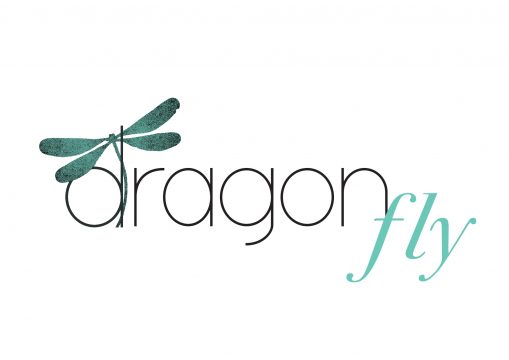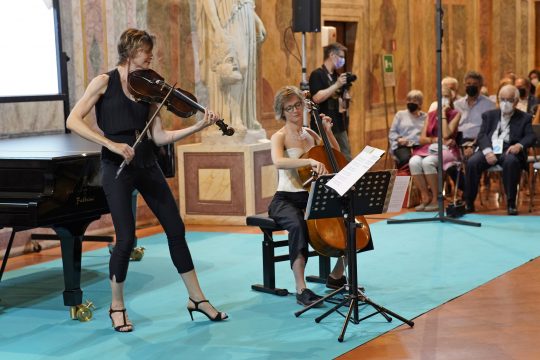LATEST NEWS
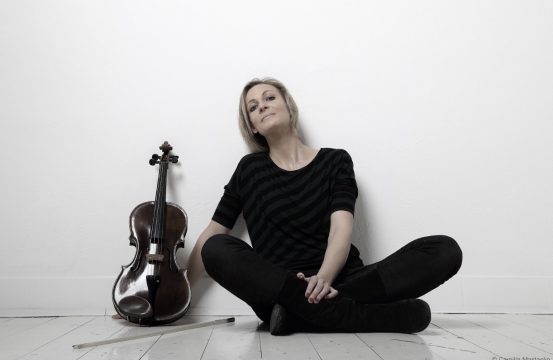
Danusha Waskiewicz DOZENTIN MASTERSTUDIENGANG an der Scuola di Musica di Fiesole
June 2025
Danusha Waskiewicz unterrichtet ab Oktober regelmässig an der Scuola di Musica di Fiesole. Sie bietet sowohl einen zweijährigen Masterstudiengang als auch eine Weiterbildung an. Die Unterrichte verteilen sich auf zweimal pro Monat. Alle Informationen dieser Studiengänge finden sie auf der folgenden Website https://www.scuolamusicafiesole.it/corsi-accademici-secondo-livello/viola-diploma-afam-secondo-livello-biennio/ und für weitere Fragen wenden sie sich bitte direkt an folgende Stefania Parigi s.parigi@scuolamusica.fiesole.fl.itRead more →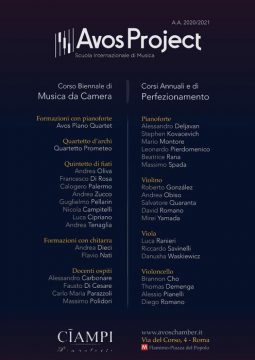
Avos Project Internationale Musikschule – Bratsche Meisterkurs für 2024/2025
February 2025
NÄCHSTE MASTERCLASS 31. MÄRZ UND 1 APRIL 2025. Seit Oktober 2020 collaboriert Danusha Waskiewicz mit dem "Avos Project", einer wunderbaren Internationalen Musikschule in Rom. Sowohl solistisch als auch kammermusikalisch eine einzigartige Realität in mitten von Rom.Read more →Entdecken: Dragonfly
April 2023
Dragonfly ist das neue Duo von Danusha Waskiewicz (Bratsche, Stimme) und Naomi Berrill (Cello; Stimme).Read more →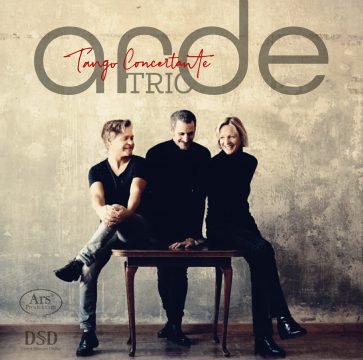
Entdecken: ardeTrio – Tango Concertante, Vol. 1
March 2021
"Tango Concertante, Vol. 1" ist das erste Studioalbum von ardeTrio, mit Danusha Waskiewicz (Bratsche), Omar Massa (Bandoneon) und Markus Däunert (Geige). Weitere Infos sind unter dem folgenden Link verfügbar.Read more →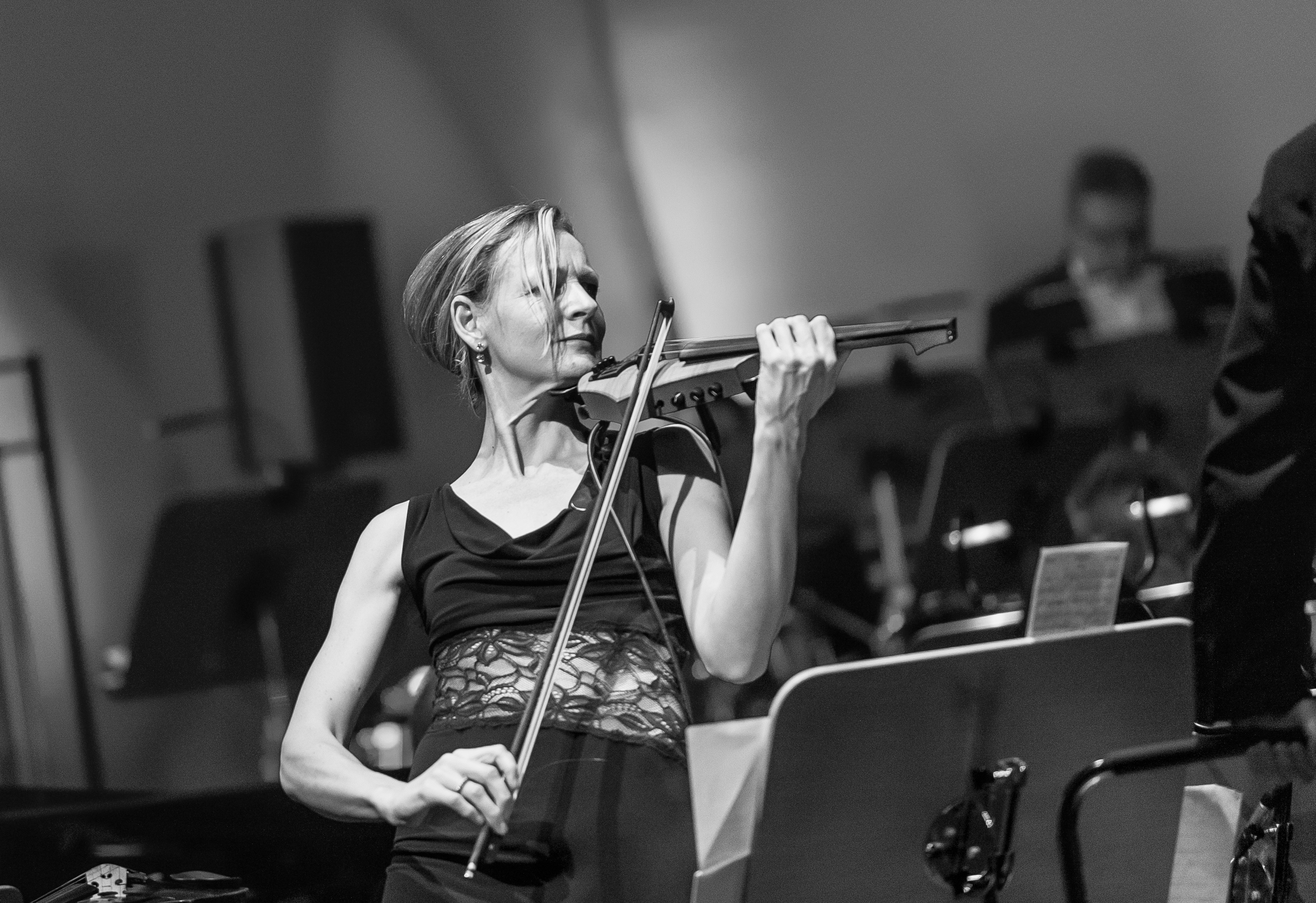
Tutorial: Hoffmeister- Konzert für Viola
October 2020
In dieser Videolektion gibt Danusha Waskiewicz Tips & Tricks, um Hoffmeisters "Konzert für Viola" vorzubereiten. Das Tutorial finden Sie unter dem folgenden Link.Read more →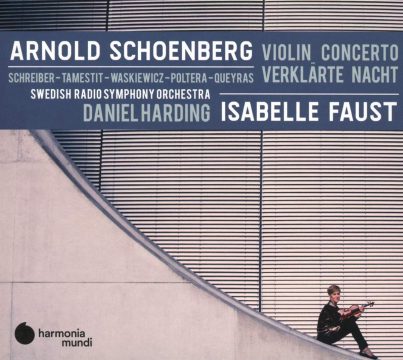
Entdecken: Schönberg: Violin Concerto – Verklärte Nacht – mit Isabelle Faust
February 2020
Hören Sie "Schönberg: Violin Concerto - Verklärte Nacht" mit Isabelle Faust (per Harmonia Mundi).Read more →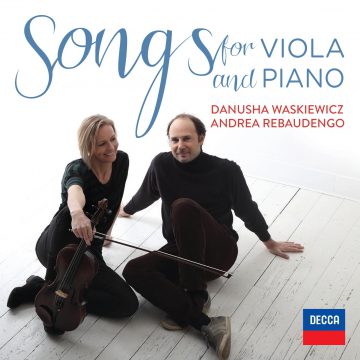
Entdecken: Songs for Viola and Piano – mit Andrea Rebaudengo
February 2017
Hören Sie "Songs for Viola and Piano". Das Album ist ein Produkt der langjährigen und erfolgreichen Kollaboration mit dem Pianisten Andrea Rebaudengo (per Decca).Read more →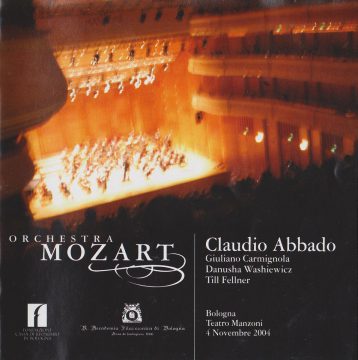
Entdecken: Mozart Orchester
February 2017
Hören Sie die "Sinfonia Concertante" und die "Brandenburgischen Konzerte". Unter Abbados Leitung spielte Danusha Waskiewicz bei der Deutschen Grammophon und Euro Arts die Werke von W. A. Mozart und J. S. Bach ein.Read more →
NEXT CONCERTS
March 7
Opera Haydn-Note to a friend di David Lang
Note to a friend
March 11
h. 20:00
Opera Haydn-Note to a friend di David Lang
Note to a friend
March 15
Solista
Music from Mozart, Eberl and Hoffmeister
Ensemble des Berner Symphonieorchesters “La Banda Storica”
Music of the classical period (430Hz) gut strings
Direttore Gianluca Capuano
March 28
h. 20:30
Quartetto Prometeo
Quartetto per archi n. 4 Op.83
Folk Songs (omaggio a Berio), musiche di Sciarrino, Francesconi, Fedele, Nieder
Jean Sibelius
String Quartet ‘Voces intimae’, Op.56
April 8
h. 20:30
Duo Waskiewicz Rebaudengo
“Le piace BRAHMS?”
Märchenbilder op.113
1.Nicht schnell
2.Lebhaft
3.Rasch
4.Langsam, mit Ausdruck
Johannes Brahms (1833 – 1897)
Fünf Lieder op.49
1.Am Sonntag Morgen – Andante espressivo
2.An ein Veilchen – Andante
3.Sehnsucht – Langsam
4.Wiegenlied – Zart bewegt
5.Abenddämmerung – Ruhig
Danusha Waskiewicz (1973)
La donna del fiume per viola sola
* * *
Johannes Brahms (1833 – 1897)
Sonata in fa minore op.120 n.1
April 11
h. 16:00
Quartetto Prometeo
ŠOSTAKOVIČ: Quartetto n. 4 in re maggiore, op. 83
FOLK SONGS (Omaggio a Berio): Musiche di Sciarrino, Dall’Ongaro, Fedele
SIBELIUS: Quartetto in re minore, op. 56, “Voces Intimae”
April 29
h. 18:00
Solista
I Solisti Aquilani & Danusha Waskiewicz e Daniele Orlando -Mozart e i colori del novecento
Paul Hindemith (1895 – 1963) Trauermusik per viola e archi
Béla Bartòk (1881 – 1945) Folksongs
Albanian Song (arrangements by Paolo Marzocchi)
May 1
h. 19:30
Bratschenparodie
Die wundersame Welt der Bratsche
Die ehemalige Solobratschistin der Berliner Philharmoniker Danusha Waskiewicz und ihre Mitmusiker Klaus Christa, Guy Speyers und İmgesu Tekerler entführen in die wundersame Welt der Bratsche – jenes Instruments, das so oft im Schatten der Geige steht und doch eine unvergleichliche Klangtiefe besitzt.
Mit feinem Witz, szenischem Spiel und musikalischer Exzellenz bringen die vier Künstler:innen ihr Publikum zum Staunen und Lachen. Ob als absurde Casting-Show eines „weltberühmten Streichquartetts“ oder als virtuose Reise durch Werke von Haydn, Bach, Hindemith und anderen – dieser Abend zeigt, wie nah Leichtigkeit und Tiefe beieinanderliegen können.
Ein humorvolles Plädoyer für ein Instrument, das zu Unrecht unterschätzt wird – charmant, virtuos und einfach wundersam.
May 30 - June 2
h. 11.00 12:30 14:30 17:30 19:30
Festival Late Music Spring Festival 2026
Vi aspettiamo perché con voi la musica diventa completa.
June 20
h. 13:00
Musica da camera— Louth contemporary music festival
louth contemporary music festival
Darragh Morgan , violin
Danusha Waskiewicz, viola
Francesco Dillon, violoncello
Beat Furrer - Canti della tenebra
November 21
h. 19:30
Duo Viola e Pianoforte Waskiewicz e Cabras
Sonata in fa minore op.120 n.1
1.Allegro appassionato
2.Andante un poco adagio
3.Allegretto grazioso
4.Allegro molto
Strawinsky Suite italienne
Canzoni populari italieni
